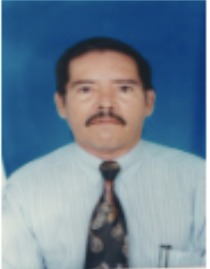POWER AND ETHICS
Those who have power, in any field. They seem to be unaware that, despite their ability to obtain it, they owe it to those over whom they exercise it.
MORE IN THIS SECTION
Listen this article
Those who have power, in any field. They seem to be unaware that, despite their ability to obtain it, they owe it to those over whom they exercise it.
Power is generally talked about in different fields: the power of the ruler, religious power, the power of the mind, the power to do something, the power of nature, economic power, etc.
However, here it is taken as the influence that some people exert on others in different situations in some of those fields indicated above. That is, power over others who have decided to grant their power to another: recognizing in an individual or organization the ability to direct, progress, grow and guide in a specific field, whether religious, economic or political.
The Pope would not have power if it were not because his parishioners grant him that possibility that grows when they accept all his teachings and personal acts as truth or approve his actions and his guidelines as the highest religious authority of his Church. The same thing happens with the pastors of other Churches and with politicians.
The businessman would not have economic power if his potential clients do not consume his products; whoever sells services receives the approval of those who come to request them.
When a politician is elected it is because his fellow citizens have placed their trust in his programs so that he can carry them out, even if he does not keep his promises. His power is fictitious when he loses the trust of his voters and can no longer convince them.
Having power means that the will of others is given to the one who has the power. Without managing that will to convince, find support and be followed, accept their decisions, be sought
after their products or services, means the loss of power.
It is, then, that it can be stated that power is not a quality or virtue that is achieved by its own virtue. It is a concession from the other.
RELATED CONTENT
When Alexander the Great conquered remote territories, he consolidated his power by gaining the will and acceptance of the subject people, providing them with situations that they accepted and, therefore, he was the emperor. The same thing happened to the Roman Empire, which did not destroy the organizational forms of the conquered peoples, but rather demanded tribute and recognition from its emperor.
This consensual dependence ended in both cases and has been repeated again and again in history when people said enough is enough because they saw their freedom violated.
Today, power is gained by managing the will of the other who is recognized as inferior but whose support is achieved. Today, power is nothing more than the dominion of some over others.
The problem is that the concept of power is conceived as the ability (the powerful are powerful because of their ability, it is believed) to exert influence on others, whether to help them solve
their problems or to guide, teach, propose and decide, as It was in primitive peoples where power was to take care of the life and integrity of the community: that is where the ethics of power was born. The leader is for the good of his group.
Today, power is conceived as the ability to be above others to manage their will and freedom, but, above all, to defend particular interests.
Ethics died when in the Middle Ages (in Western culture) truths were attributed to the power that God gave to kings, bishops and Popes to direct their parishioners and subjects with the postulate that authority comes from God who truly It was a sophistry to keep the freedom and conscience of the non-powerful imprisoned.
Today, from pulpits, academic centers and homes, an immense effort is made to revive that lost ethic, but the force of wanting to have power prevents it with deceptions, promises, false truths and all kinds of tricks to sustain or acquire it.
Power dealt a mortal blow to ethics, being the one who gave life to feed it and to live together in peace and love for all. Now, we hand over our power and freedom to another or others without expecting anything more than to continue subsisting.







LEAVE A COMMENT:
Join the discussion! Leave a comment.